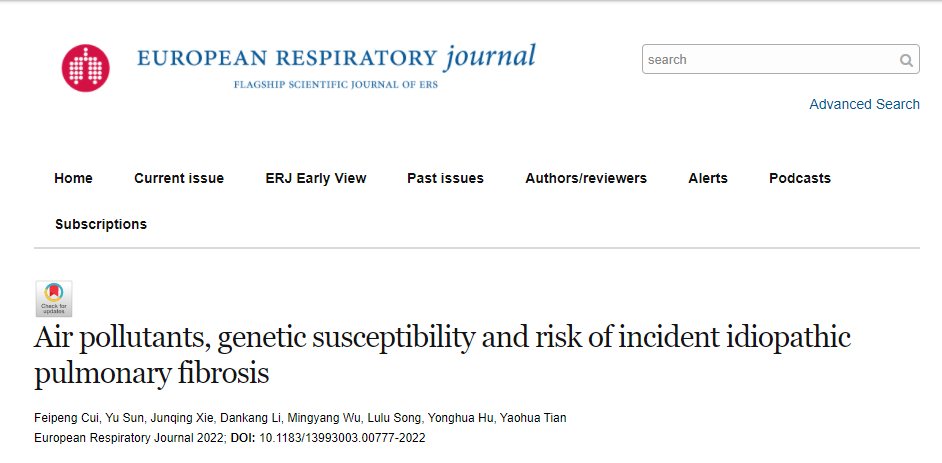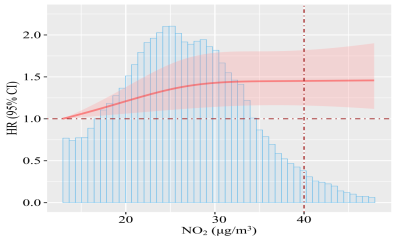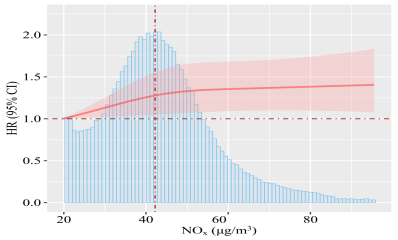On 22 September, TIAN Yaohua's team of School of Public Health of HUST, published the latest research results of "Air pollutants, genetic susceptibility and risk of incident idiopathic pulmonary fibrosis" on European Respiratory Journal (impact Factor: 33.8). CUI Feipeng, a doctoral student of the School of Public Health, and Professor SUN Yu of Union Hospital are co-first authors, and associate researcher TIAN Yaohua is the corresponding author.

Air pollutants are considered as non-negligible risk factors of idiopathic pulmonary fibrosis (IPF). However, the relationship between long-term air pollution and the incidence of IPF is unknown. So the reaearch aimed to explore the associations of air pollutants with IPF risk and further assess modification effect of genetic susceptibility.
Land-use regression model estimated concentrations of nitrogen dioxide (NO2), nitrogen oxides (NOx), and particulate matter (PM2.5and PM10). The polygenic risk score (PRS) was constructed using 13 independent SNPs. The Cox proportional hazard models were used to evaluate the associations of air pollutants with IPF risk and further investigate the modification effect of genetic susceptibility. Additionally, absolute risk was calculated.

Among 433 738 participants from the UK Biobank, the incidence of IPF was 27.45/1 00 000 person-years during a median follow-up of 11.78 years. The adjusted hazard ratios (HRs) [95% confidence interval (CIs)] of IPF for each interquartile range increase in NO2, NOx, and PM2.5were 1.11 (1.03, 1.19), 1.07 (1.01, 1.13), and 1.09 (1.02, 1.17), respectively. PM2.5had the highest population attribution risk, followed by NOxand NO2. There were additive interactions between NO2, NOxand PM2.5and genetic susceptibility. Participants with high PRS and high air pollution had the highest risk of incident IPF compared to those with low PRS and low air pollution [NO2: 3.94 (2.77, 5.60); NOx: 3.08 (2.21, 4.27); PM2.5: 3.65 (2.60, 5.13); PM10: 3.23 (2.32, 4.50)].

Long-term air pollutants exposures may elevate the risk of incident IPF. There are additive effects of air pollutants and genetic susceptibility on IPF risk.
Paper link:
https://erj.ersjournals.com/content/early/2022/09/14/13993003.00777-2022
